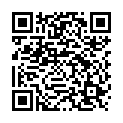|
|
|
| Module code: BIBA694 |
|
|
2VU (2 hours per week) |
|
2 |
| Semester: 6 |
| Mandatory course: yes |
Language of instruction:
German |
Assessment:
Term paper
[updated 29.04.2024]
|
BIBA694 (P110-0178) Civil and structural engineering, Bachelor, ASPO 01.10.2017
, semester 6, mandatory course
|
30 class hours (= 22.5 clock hours) over a 15-week period.
The total student study time is 60 hours (equivalent to 2 ECTS credits).
There are therefore 37.5 hours available for class preparation and follow-up work and exam preparation.
|
Recommended prerequisites (modules):
None.
|
Recommended as prerequisite for:
|
Module coordinator:
N.N. |
Lecturer: N.N.
[updated 30.10.2023]
|
Learning outcomes:
After successfully completing this module, students will:
- be familiar with the formal criteria for writing academic papers in their degree program and be able to apply them
- be able to recognize the differences in form and content between different types of academic texts (protocol, project report, bachelor thesis, etc.) and apply them
- be able to write their own scientific texts and apply linguistic and grammatical structures relevant to scientific writing
[updated 29.04.2024]
|
Module content:
- Formal criteria for and structure of scientific papers
- Dealing with sources (quoting and paraphrasing, citation styles)
- Factual and technical language and logical structure of texts
- Differences between everyday and academic language
- Cultural differences in scientific language
- Linguistic and grammatical structures for writing scientific texts
- Inclusion of concrete writing projects from the students´ subjects
[updated 29.04.2024]
|
Teaching methods/Media:
- Working on and with concrete examples of different types of scientific texts
- Guided writing of their own texts and mutual corrections
- Self-correction of the students own texts
- Group and individual meetings
- Multimedia-based teaching and learning material tailored to the target group
[updated 29.04.2024]
|
Recommended or required reading:
- Will be announced in the course
- Key texts and materials will be provided during the course
[updated 29.04.2024]
|


